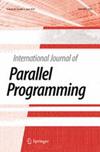Antibacterial effect of ethanolic extract of Mirabilis jalapa (Alsaa Arbaa) seeds against some bacteria
IF 0.9
4区 计算机科学
Q3 COMPUTER SCIENCE, THEORY & METHODS
引用次数: 0
Abstract
An indigenous medicinal plant Mirabilis jalapa (family: Nyctaginaceae) was widely used as a traditional medicine in many parts of the world for treatment of various diseases: antiviral, antibacterial, antifungal, anti tumours, anti-nociceptive, anti-inflammatory agent, laxative, dysentery, muscular pain and abdominal colic. The research indicates the effectiveness of the seeds of 4-O’clock plant against Staphylococcus aureus and Escherichia coli. The seeds of the plant were collected, air dried, powdered and (100 gm.) subjected to gradient extraction using soxhlate apparatus. Ethanol 70% was used as a solvent. Three concentrations presenting 50% (500 mg/ml), 25% (250 mg/ml) and 12.5% (125 mg/ml) were prepared. In-vitro antibacterial assay of the ethanolic extract of the plant seeds was performed using agar wells diffusion method, disc diffusion method and dilution method with distilled water as negative control. The seeds of the plant exhibited significant antibacterial effect against Staphylococcus aureus and Escherichia coli. The greatest zone of inhibition was displayed by well diffusion method against Staphylococcus aureus at 500 mg/ml was 29 mm, at 250 mg/ml was 18 mm and at 125 mg/ml was 12 mm. But at same concentrations when were used disc diffusion method the result were displayed are 24 mm at 500 mg/kg, 9mm at 250 mg/ml and 7 mm at 125 mg/ml against Staphylococcus aureus. And 20 mm at 500 mg/ml, 14.3 mm at 250 mg/ml and 8.3 mm at 125 mg/ml against Escherichia coli. Keywords: Mirabilis jalapa, Seeds, Staphylococcus aureus, Escherichia coli, Disc diffusion, Well diffusion紫茉莉种子乙醇提取物对细菌的抑菌作用
一种本土药用植物紫茉莉(科:Nyctaginaceae)在世界许多地方被广泛用作传统药物,用于治疗各种疾病:抗病毒、抗菌、抗真菌、抗肿瘤、抗伤害、抗炎剂、泻药、痢疾、肌肉疼痛和腹绞痛。研究表明,4-O’clock植物种子对金黄色葡萄球菌和大肠杆菌具有较好的抗菌效果。收集该植物的种子,空气干燥,粉末化,并(100g)使用索氏装置进行梯度提取。使用70%的乙醇作为溶剂。制备了呈现50%(500mg/ml)、25%(250mg/ml)和12.5%(125mg/ml)的三种浓度。采用琼脂扩散法、圆盘扩散法和蒸馏水稀释法对植物种子乙醇提取物进行了体外抗菌试验。该植物种子对金黄色葡萄球菌和大肠杆菌具有显著的抗菌作用。在500mg/ml浓度下,孔扩散法对金黄色葡萄球菌的最大抑制区为29mm,250mg/ml浓度下为18mm,125mg/ml浓度下为12mm。但在相同浓度下,采用圆盘扩散法,结果显示,在500mg/kg浓度下,对金黄色葡球菌的抑制区为24mm,250mg/ml剂量下为9mm,125mg/ml浓度下为7mm。500mg/ml时为20mmat,250mg/ml时为14.3mm,125mg/ml时为8.3mm。关键词:紫茉莉,种子,金黄色葡萄球菌,大肠杆菌,盘扩散,井扩散
本文章由计算机程序翻译,如有差异,请以英文原文为准。
求助全文
约1分钟内获得全文
求助全文
来源期刊

International Journal of Parallel Programming
工程技术-计算机:理论方法
CiteScore
4.40
自引率
0.00%
发文量
15
审稿时长
>12 weeks
期刊介绍:
International Journal of Parallel Programming is a forum for the publication of peer-reviewed, high-quality original papers in the computer and information sciences, focusing specifically on programming aspects of parallel computing systems. Such systems are characterized by the coexistence over time of multiple coordinated activities. The journal publishes both original research and survey papers. Fields of interest include: linguistic foundations, conceptual frameworks, high-level languages, evaluation methods, implementation techniques, programming support systems, pragmatic considerations, architectural characteristics, software engineering aspects, advances in parallel algorithms, performance studies, and application studies.
 求助内容:
求助内容: 应助结果提醒方式:
应助结果提醒方式:


